- Home
- Academics
- Center for Research on Global Engagement
- Faculty / Staff Scholarship
Faculty / Staff Scholarship
Faculty/Staff Scholarship
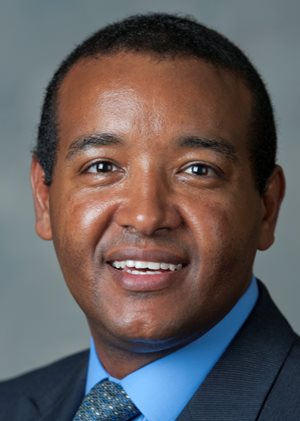
Mussa Idris
Mussa Idris, Assistant Professor in the Department of Sociology and Anthropology, received CRGE grant funds to support his study assessing opportunities and challenges of mentoring undergraduate ethnographic research and High Impact Practices in local and global contexts. The title of his current research projects are “Mentoring Undergraduate Students Ethnographic Research and High-Impact Practice in Local and Global Context” and “Refugee Resettlement Experiences from Sub-Saharan Africa to Greensboro, North Carolina.”
Idris has an on-going ethnographic research project in Greensboro, North Carolina, that engages multiple stakeholders, including a refugee resettlement agency, undergraduate students and newly resettled refugee communities. This ethnography aims to inquire and understand the newly resettled refugee communities’ resettlement and integration processes and refugee micro-enterprises in the Triad area, as a pathway to develop a community-based participatory impact assessment.
For this work and his success in mentoring students, Idris was awarded the Steven and Patricia House Excellence in Mentoring Award during the 2022 annual awards luncheon for faculty and staff.
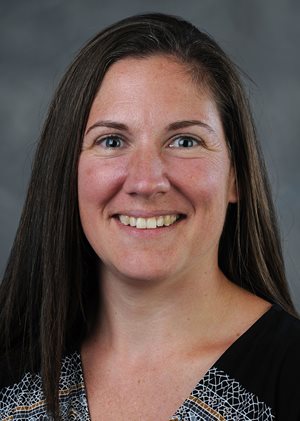
Amanda Tapler
Amanda Tapler, Senior Lecturer in the Department of Public Health Studies received a Community of Practice grant to support her study assessing the impact an international public health practicum (PHS 381), at the Comprehensive Rural Health Project (CRHP) in Jamkhed, India, has on students’ understanding and development of intercultural humility/ethnocultural empathy. The results of the study, following the 3-week immersion course at CRHP, revealed significantly higher levels of overall ethnocultural empathy, especially in the areas of Empathetic Feeling and Expression, Empathetic Perspective Taking and Acceptance of Cultural Differences. In addition to continuing this line of research, Amanda received a Community of Practice grant to support the investigation of undergraduate research in global and diverse contexts in relationship to mentoring and development of intercultural competence.
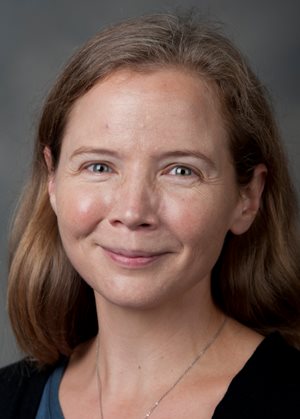
Jen Hamel
CRGE supported the work of Jen Hamel, Assistant Professor of Biology, and her research student, Elon College Fellow Alina Iwan (Biology ’19) at the Smithsonian Tropical Research Institute (STRI) in Panama. At STRI, Dr. Hamel and her students worked with colleagues from several institutions to study behavior and evolution in a diverse group of animals: katydids. In addition to mentoring individual research students, Dr. Hamel also co-teaches an Elon Study Abroad course in Panama (Bio 335, Field Biology Panama) with Dr. David Vandermast. In the CRGE Community of Practice focused on mentoring undergraduate research in global contexts, Dr. Hamel received feedback and peer mentoring from Elon colleagues on her efforts to embed research experiences in this field course.
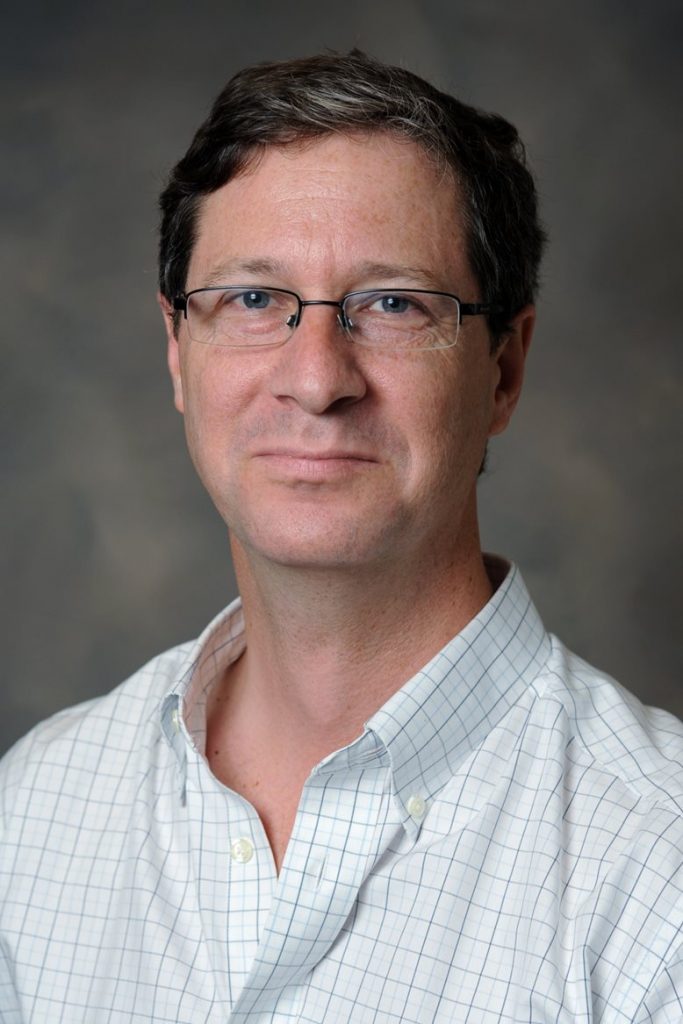
Michael Carignan
Associate Professor of History Mike Carignan has been conducting research on various aspects of study abroad learning since 2014. One study looks at variables across different short-term study abroad programs from six different institutions of higher education in the United States and Canada. Focusing on intercultural competence development, the study suggests that trained-instructor interventions and higher amounts of intercultural training activity before departure have positive impact on student development. The study also finds that certain program features, e.g., whether there is a service-learning component, conditions the in-country intercultural opportunities and possibly the amount of intercultural growth students achieve. This study grew out of Mike’s participation in a three-year CEL symposium on global learning (2015-17) and the team has presented its findings at the 2016 AAC&U Global Learning conference in Denver, the Elon Symposium on Global Learning in 2017, and at the 2017 ISSOTL conference in Calgary. Several article manuscripts are under review or in development along with a conference presentation at the International Studies Association 2018 annual meeting in San Francisco.
Mike has been leading study abroad programs to Europe for over 15 years, and his interest in systematically studying its impacts on students began when he and Maureen Vandermaas-Peeler developed a new short-term study abroad program for first-year Honors Fellows. Tasked with assessing the new program and the pilot-cohort that went to Turkey in 2013, Mike and Maureen gathered several forms of data from students that indicated various amounts and forms of increasing global awareness, familiarity with the politics and culture of the region, and intercultural competence development. They have presented their findings at the 2015 ISSOTL in Raleigh and the National Collegiate Honors Council 2016 annual meeting in Seattle and currently have an article manuscript under review.
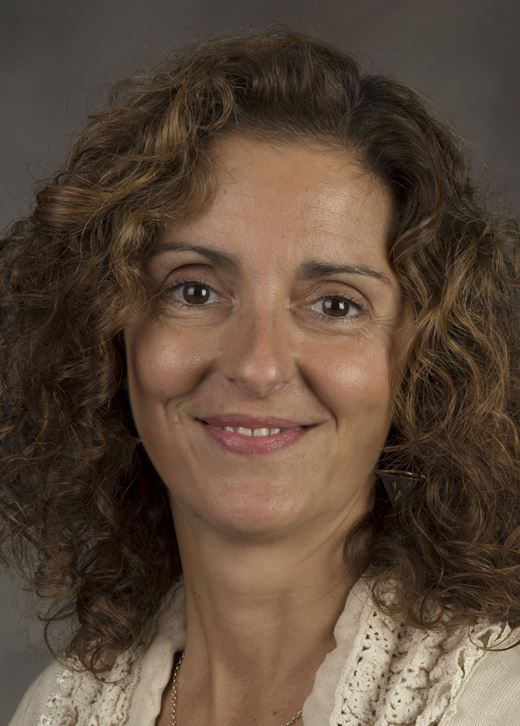
Paula DiBiasio
Paula DiBiasio, assistant professor, Doctor of Physical Therapy Education (DPTE) and coordinator for DPTE Global Learning Opportunities program received CRGE grant funds to support her multisite study assessing the intercultural competence of DPT students and alumni at Elon and other DPT programs nationally.
The School of Health Sciences started the Global Learning Opportunities (GLO) program in 2012 with the early objective of building culturally unique, high impact academic experiences for School of Health Sciences students. The Department of Physical Therapy Education has GLO programs in 7 countries and the US. All of the global programs are imbedded in existing didactic or clinical education courses and are credit bearing. Given the newness of these programs, Paula’s primary research question is: Via DPTE GLOs, are students learning/developing intercultural competence? Are we moving graduates closer toward the “global citizens” we desire to support? How do we know if we are accomplishing our goals?
In graduate education, global learning experiences are growing rapidly especially in healthcare. In order to achieve the development of culturally competent physical therapists many DPT programs have added global learning experiences to their curriculum however little is known about the impact of these initiatives. Identifying variables that contribute to high value global learning experiences leading to best practices for engaging in global health initiatives, that result in the greatest gains in intercultural competence, is an anticipated outcome of this research. Findings from this research will also guide academic program development, validation, and allocation of resources for DPT programs nationally. Outcomes of this work will provide evidence for the establishment and advocacy of best practices in DPT global education.